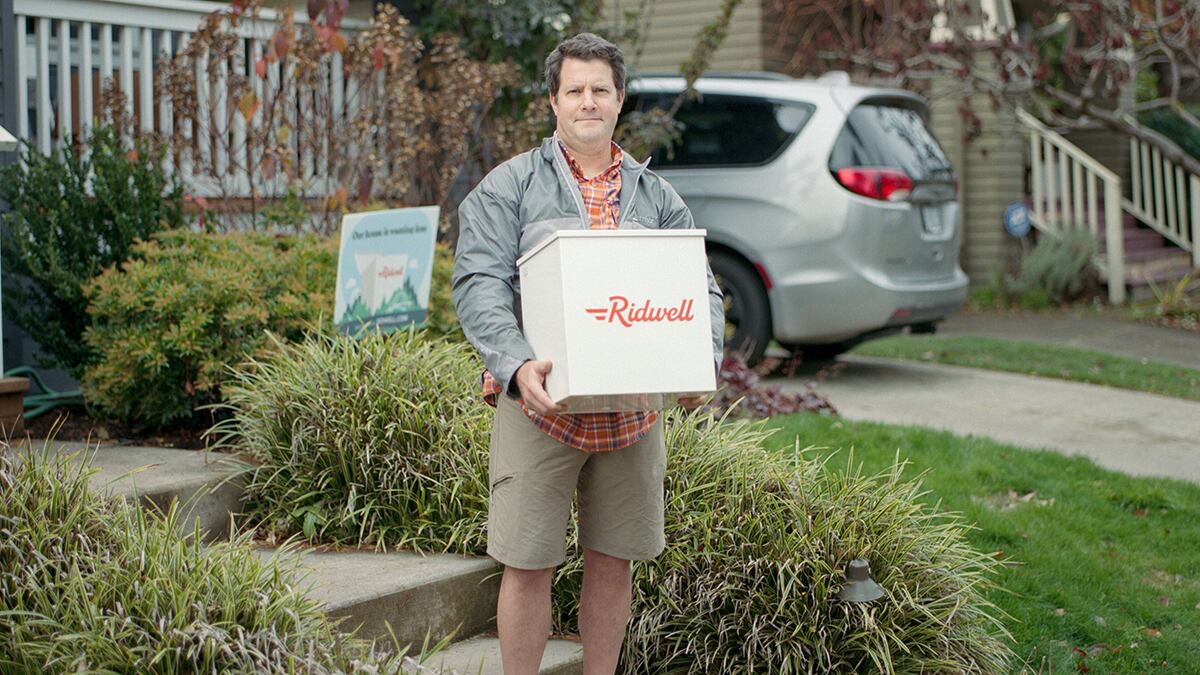The company that collects hard-to-recycle items from Pacific Northwest doorsteps continues to spar with Washington County officials, and neither side will back down.
Ridwell, a Seattle-based company, has been met with hostility by suburban counties since it first arrived in the Portland metro area in late 2020 and has fought municipalities that argue Ridwell’s services violate the cities’ exclusive waste-collecting franchise agreements with trash haulers.
Earlier this year, Ridwell sued Washington County in federal court for forcing it to withdraw its services in unincorporated areas of the county. (Ridwell voluntarily withdrew from both Clackamas and Washington counties after the counties sent the company cease-and-desist letters and threatened it with monetary penalties if it continued operating there.)
On March 25, the deadline for Washington County to respond to Ridwell’s lawsuit, the county filed a motion to dismiss the suit. It will likely be months before a judge makes a ruling on the matter.
The company’s signature white boxes with cherry-red lettering sit on the doorsteps of more than 22,000 Portland-area households. While the bulk of its customers do not reside in counties that have fought Ridwell, the conflict is symbolic: Trash haulers want to defend their territory, and any encroachment on their turf is seen as an existential threat.
WW first chronicled that fight in December.
Ridwell has long argued that because it collects only recyclables that traditional trash haulers cannot, such as batteries, plastic foam and light bulbs, it is not in violation of trash-hauling franchise agreements. (While Portland’s trash haulers fought Ridwell’s arrival, the Portland City Council unanimously approved an exception for companies like Ridwell to operate within city limits.)
Ridwell sued Washington County on Jan. 21, arguing the county was improperly protecting the trash haulers’ monopoly at the expense of the state’s recycling goals.
In late January, Washington County commissioners approved a temporary rule that allowed Ridwell to continue operating until the county’s franchised trash haulers could start their own program (early versions appear to emulate Ridwell’s service almost exactly). If approved, that program is expected to start sometime this summer, at which point Ridwell would once again be ousted.
In a January meeting, the county’s manager of solid waste and recycling, Thomas Egleston, summed up the haulers’ public position why they should provide the service and not outsiders like Ridwell: to ensure items collected are disposed of responsibly and any resident who wants the service has access to it.
“Innovation does not bloom in a regulated system like this, but those services are provided consistently, under the county’s authority, and provided at the behest of the county in alignment with our priorities and vision,” Egleston says. “The haulers have signaled to use through memorandums that they are interested and can provide this service.”
Ridwell says franchised haulers expressed no interest in collecting hard-to-recycle materials until the company arrived in Portland.
“Expanding the haulers’ monopoly and kicking innovative new businesses out of unincorporated Washington County is bad for both consumers and the environment,” Caleb Weaver, Ridwell’s vice president of public affairs, tells WW. “The public will have to pay more for an inferior service that has fewer opportunities to keep stuff out of the landfill.”

